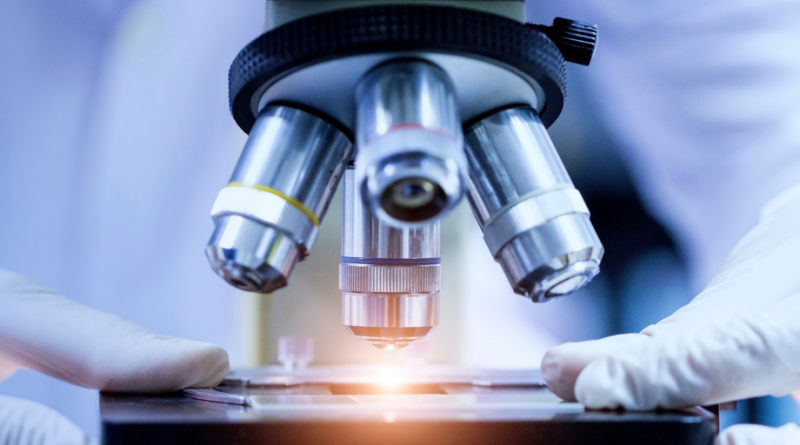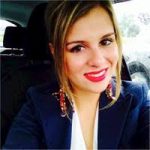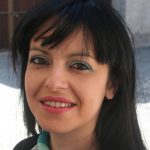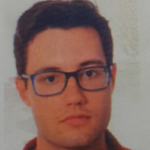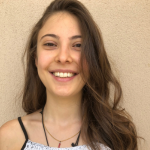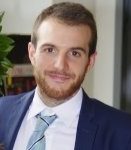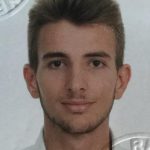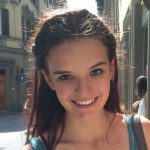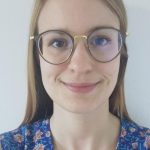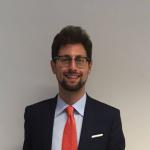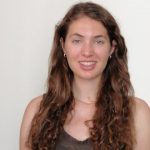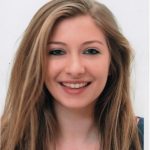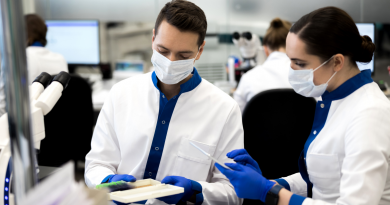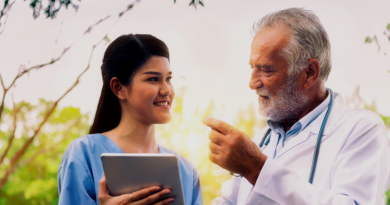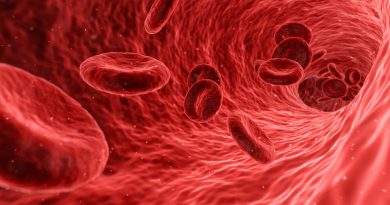Research Laboratory Rotations: Reflections from our Students and Tutors
A big thank you to our young, growing scientists as they conclude their lab experience, all eager to learn and to push the boundaries of knowledge.
Lab Rotations are short-term 4 weeks opportunities for our students, which they undergo every year for three consecutive years to understand different lab environments before ultimately choosing a thesis lab and advisor. Through rotations, our endeavor is that they learn the link between basic science and clinical medicine, alongside learning some technical skills and enjoying some intellectual experiences. During the lab rotations the students have been guided by Tutors, who are bright, young research scientists working across varied fields.
As the students conclude their experiences, here are some testimonials:
TUTOR, Greta Forcaia, UNIMIB
“As PhD student in Neuroscience at Human Physiology lab, headed by Prof. Giulio Sancini, I had for the second consecutive year, the opportunity to be a Tutor in Virgilio program. I enjoyed working with Virgilio students, lab experience is a great opportunity for them to learn knowledge about science, and at the same time for tutors and mentors to teach and communicate their experiences.
Virgilio students who attend the lab and whom I Tutored have consistently shown a strong desire to participate in lab activities and commitment to their work. I strongly recommend this experience for medicine students to learn about science and lab life.”
STUDENT Fabrizio Murru, UNIMIB - 2nd Cohort
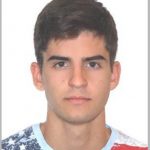
“Throughout this month I got acquainted with the challenging reality of the neurophysiology lab. I was working alongside my Tutor on the neurophysiological research studies, aimed to evaluate the clinical potential of brain targeted nanoparticles. To begin with, my Tutor helped me learn about equipment, preparation of solutions and laboratory tools; thereafter, developing a conceptual understanding of the research and subsequently applying the methods in order to perform ex vivo and in vivo neurophysiological studies. With her guidance I was able to work on experiments and develop some basic skills. I learnt that errors and unexpected results are also crucial parts of an experimental study and are needed in order to progress. I found very lab experience very positive and inspiring!”
TUTOR, Elisa Conti, UNIMIB
“Virgilio student worked alongside me on the project - Interaction between neuroinflammation and cholinergic dysfunction in Alzheimer's disease. I must acknowledge that I enjoyed the Tutoring experience. The student showed a strong work ethics and was proactive in the lab, following and participating all the lab activities.”
STUDENT Ludovico La Bella, HUMANITAS - 2nd Cohort
“My first rotation in the Neurodevelopment lab was a great experience and it allowed me to get a first preliminary insight in the field of research. My tutor helped me in fully understanding all the topics currently under study and she explained all the protocols and the techniques required for the different experiments. Overall this rotation reinforced my interest in the field of neurology and hopefully the next step will be to integrate also a clinical angle to basic science research, in order to get a better perspective into translational medicine.”
STUDENT Silvia Schiava, UNIMI - 2nd Cohort
“My lab experience has been extremely hard sometimes, but also truly satisfying overall. Entering a different reality, such as the one in the lab when compared to the one in a hospital ward, has been exciting, but also demanding since many techniques were practically unknown to me. However, having a tutor by my side - who explained everything I had to see and do and involved me at every step of reasoning and hypothesis formulating has been insightful. Through this experience I learnt how to proceed in a research project or rather how to formulate hypothesis, trying to prove your ideas are correct and learn from your mistakes - which will be your “saving points” from where you can start to formulate hypothesis again. I realized how having a realistic goal often means to obtain real results: working as a researcher does not mean to think as a dreamer, but to think as a careful observer of the reality surrounding yourself. In the end, I admit that my most important learning has been to appreciate patience and strong willpower as fundamental qualities of a good researcher as well as a good doctor.”
TUTOR Clara Mancuso, UNIMIB
“Tutoring in the Virgilio program has been really interesting: on one side medical students, with their questions make you understand how important the "scientific research" field is and on the other side, "our work" as Tutor is to open their eyes to a world that until now has been unknown to them and that will be a treasure for their future.”
STUDENT Simone Scarcella, UNIMI – 1st Cohort
“As my first lab rotation in the Virgilio Program, I attended the Autoimmunity and Metabolism Laboratory led by Prof. Carlo Selmi. Here I had the chance to observe and learn some of the basic techniques performed in most laboratories, such as ELISA and western blot, and other more specific techniques, for example immunoprecipitation and cytofluorometry. The guidance of my tutors, Dr. Angela Ceribelli and Dr. Natasa Isailovic, was essential in this first lab experience. They supported me in the “laboratory life” and helped me understand what is behind all the laboratory activities. They showed me how to plan and prepare an experiment and taught me that sometimes the most important information is obtained from the unsuccessful experiments, through the understanding of what went wrong. One of the most important things I learnt from this experience is the attention that even a test tube deserves. Not only the success of the experiment depends on that, but you are able also to change the quality of life of the patient you are working for and with.
As a Virgilio Program student, I want to learn to better use the tools and refine the skills necessary for a physician-researcher in the medicine field.”
STUDENT Stefano Rigo – HUMANITAS – 1st Cohort
“During my first lab experience as a Virgilio student, I attended the laboratories of Neurosciences; the division studying synaptopathies and neurodegeneration, I had the opportunity to understand how theory and reality are very much apart from each other. My tutor and all the Neuro staff were there guiding and helping me, however the transition from class desk to the lab desk has been a revelation. I realized all the planning that goes into research experiments that may or may not give conclusive results. Everything must be done with precision and attention to detail, or else an entire experiment might be thrown out. Also, many repetitions must be done to discover real patterns and results. Though much of this may seem tedious and pointless at the time, one must look past that to grasp the big picture.
I’m glad to have got this opportunity as it helped me to understand how science works, and whatever path I’ll choose to follow in the future ,I’m sure that after this experience, I’ll have a more solid ground below my feet and a broader mind guiding me ahead.”
STUDENT Mattia Basile, UNIMIB – 1st Cohort
“I recently completed my 2nd lab rotation at the Center for Neuroscience in Albert-Ludwigs-Universität in Freiburg, Germany. It has been a great experience here in the lab in Freiburg. I met a lot of inspiring people and I discovered so many lab techniques and neuroscience themes I could never imagine. I think that the international mobility inside the Virgilio Program could be a winning point to improve this great program.”
STUDENT Beatrice Buratto, UNIMI -1st Cohort
“I did my 2nd lab rotation in Dr. William Pu lab at Boston Children’s Hospital as part of my Giovanni Armenise Fellowship. There I had the chance for the first time to work in cardiology research, as previously I had been involved in the translational immunology field.
I worked on 2 projects, quite different from one another: in one I was developing and testing a new kind of GEVI (genetically encoded voltage indicator) while the other was about disease modeling using iPSCs. It was extremely challenging to stay on top of both, but I had the opportunity to learn so many different techniques from gene cloning to iPSCs differentiation to bioinformatics.
Moreover, an important learning for me has been that one has to first try to solve the problem on your own, and only later go and ask for help. Because that’s the only way you can improve your project design. As a Virgilio student, I appreciate the opportunity to pursue my interest in the basic research in the university environment. I think that usually it’s quite difficult to change field of interest or experiment multiple areas to understand which one fascinate a person the most, Virgilio Program presents this unique chance in a mentored way.”
STUDENT Elena Maria Ticozzi, HUMANITAS – 1st Cohort
“I did my first lab rotation in the developmental neurobiology lab, where under the guidance of my tutor I began to slowly practice manual skills starting from how to use a simple pipette and ending up working with cultures of neuronal cells. For a month I was part of the lab's life in every aspect, helping with experiments, attending meetings and reading papers: a unique opportunity to better understand the world of research.”
STUDENT Vera Pacova dal Maschio, UNIMI – 1st Cohort
"In the past two years, through the Virgilio Program, I was able to attend different laboratories in the field of Neuroscience. My most recent experience was in the laboratory led by Prof. Molteni, in which I had the opportunity to work on biological samples derived from rats and study the molecular changes associated with stress-induced depression. My tutor Nena, as well as the PhD student, Vittoria, taught me not only the fundamentals of various techniques, such as Western Blot and RT-PCR, but also how to reason through the experiments and how to approach my scientific questions. Throughout my rotation, I acquired increasing trust by the laboratory team and independence in my work. Overall, it was a great experience, both academically and personally!"
TUTOR Alessio Gerussi, UNIMIB
“My experience as a Tutor within the Virgilio program has been excellent and I hope this could be replicated in the future. The student who came to visit our lab was extremely smart and dedicated, full of ideas and well-posed questions. It was really stimulating for me to be challenged on topics which I am supposed to master. Lab rotation is indeed a learning moment also for tutors: we should always remember that the best way to know something is to teach it.”
STUDENT Marta Sanfilippo, UNIMI – 2nd Cohort
“I had an amazing lab experience, my mentor Paolo Corradini gave me the opportunity to follow also the clinical part (bed side), my Tutor Cristiana made understand the link between the lab and the hematological unit, and all the people in the lab who explained, guided and taught me all the techniques. 1 month in the lab I learnt the following:
- the precision, the techniques and manual skills required
- importance of lab work in patient management
- importance of cooperation between lab and clinicians
I experienced on one side the "results" of the research, on the other side the use of a therapy, with the final aim to understand the need of new therapies for some malignancies. Behind every little step, discovery and new drugs there is a long and hard work.”
TUTOR Valeria Vezzoli, UNIMIB
“Tutoring in the Virgilio program has been a very formative experience for me and the Virgilio student. During the laboratory rotation period, my student rapidly acquired both theoretical understanding and technical skills, thus becoming a part of the team in the lab and actively participating in all the lab activities.”
STUDENT Emma Esposito, 2nd Cohort, UNIMIB
“I did my first lab rotation in the Molecular Hematology & Oncology lab in my university. The lab staff warmly welcomed me and especially my tutor, Dr. Geeta. She explained to me everything from the start: experiments going on, cell lines they were using, etc. I appreciated how keen they were in going through every step with me and helping me with the practical approach. I think this is the perfect lab to start this program because I was able to see different techniques from general to a more specific type. I thank my Tutor immensely for her guidance and support”
